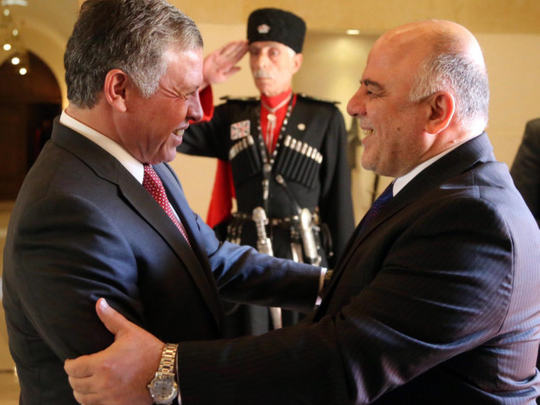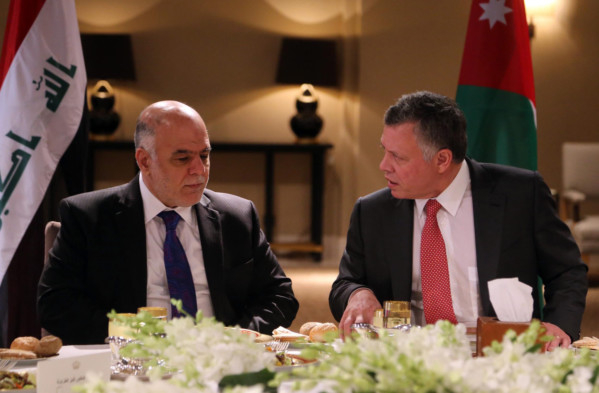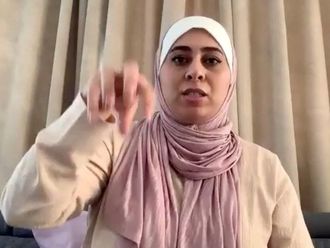
Amman: As US-led warplanes pound militants in Iraq, prominent Sunni exiles say that empowering their marginalised minority will be more important than bombs and missiles in defeating the Daesh extremist group.
Deadly sectarian tensions have riven Iraq since the fall of Saddam Hussain more than a decade ago, with Sunni anger at the Shiite-led authorities seen as a key factor behind the rise of Daesh.
“Dropping bombs from planes will not eliminate the terrorism of the so-called Daesh,” said Iraqi Sunni cleric in exile Shaikh Abdul Malek Al Sa’adi.
“What is needed to eliminate this terrorism is to eradicate the motives behind injustice, marginalisation and genocide, and to give people back their rights and freedoms,” he said in the Jordanian capital Amman, home to thousands of Iraqi refugees.
Daesh has seized swathes of Iraq and Syria, declaring an Islamic “caliphate” and committing widespread atrocities.
Since Saddam was ousted in the US-led invasion in 2003 and later executed, the Shiites have emerged as the driving political force.
Sunni clerics and community leaders living in exile in Jordan say power-sharing in Iraq between Kurds, Sunnis and Shiites will be needed to bring stability to the violence-wracked nation.
Without a political consensus between all Iraqis, “we will not be able to beat Daesh, and even if we succeed another group will emerge — another Daesh,” warned Yahya Al Kubaisi, a consultant for the Amman-based Iraqi Centre for Strategic Studies.
Sa’adi, the cleric, said the US-led coalition carrying out air strikes on the militants must “revise its positions because the situation will get worse across the world”.
He urged the coalition leaders to meet Sunni figures to hear their demands, including the creation of an Iraqi government of technocrats.
“When our rights are met, we will know how to deal with Daesh. This is our problem,” he said.
Jordan is home to 150,000-200,000 Iraqis who fled the violence that has swept across their country following the US-led invasion that ousted Saddam.
The exodus grew after a Sunni-Shiite sectarian war in 2006-2008 killed tens of thousands of people — one of the darkest pages of Iraq’s modern history.
Now Sunni leaders say they fear the coalition air strikes pose a threat to their existence.
‘Rock and a hard place’
Iraq’s Sunni provinces are “stuck between a rock and a hard place,” said Shaikh Mohammad Bashar Al Faidhi, spokesman for the Association of Muslim Scholars in Iraq.
“On the one side there is Daesh, with its takfiri [extremist] doctrine which no one accepts, and on the other side there is the government and its injustice. And then there are the coalition air raids,” he said.
“Are we going to witness a war of extermination against all the Sunnis under the cover of a war against the [Daesh] group?” he asked.
The air strikes come almost three years after US troops completed their withdrawal from Iraq, ending a nearly nine-year occupation.
Shaikh Raad Abdul Sattar Sulaiman, a senior member of the key Dulaim tribe of the western province of Anbar, urged the international community to refrain from taking part “in another failed battle” in Iraq.
Underscoring the importance of Anbar’s Sunni tribes, on a recent visit to Jordan, Iraqi Prime Minister Haider Al Abadi met six of their representatives who presented a list of demands including no raids against civilians and compensation for civilian victims.












